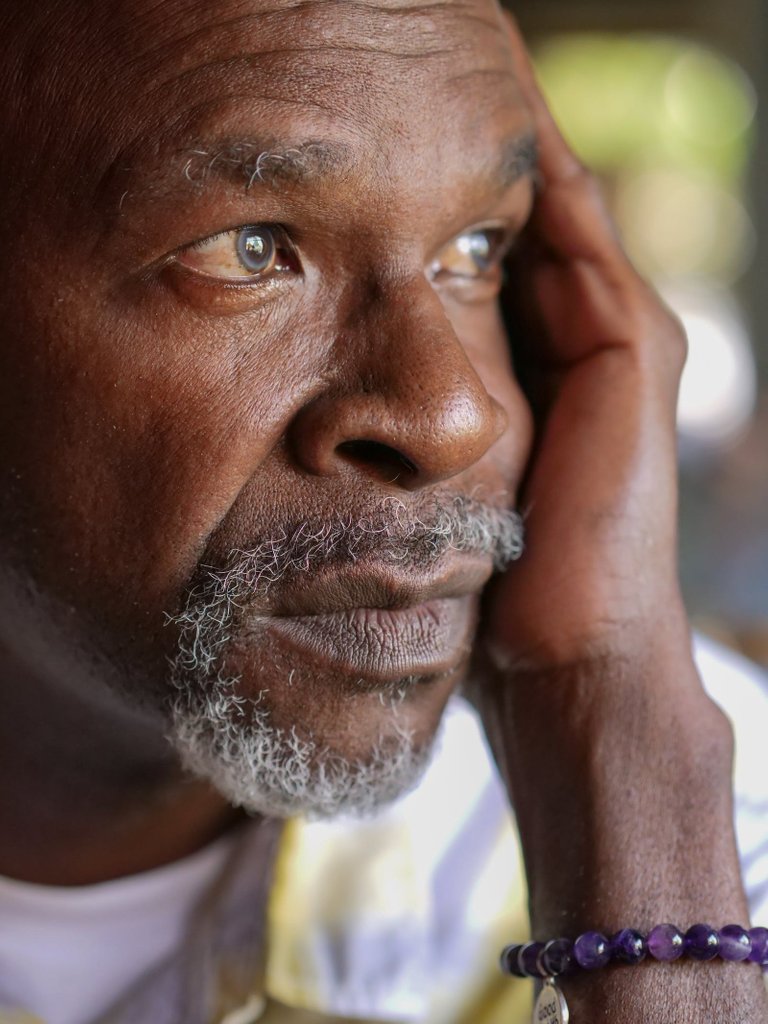Dementia- A Range of Deadly Disease.
Most recently, after reading some articles, I have heard the mention of ''Dementia'', and I have become more curious to know more about it, after learning so much about it, I have decided to share it here as well.

pexels
Dementia is a general term usually used to describe disorders linked to brain changes when these changes occur, they usually trigger a decline in thinking ability, usually significant enough to alter daily activities and functions, they also have the ability to alter changes in relationships by affecting behaviour and feelings. Dementia occurs more often in people as they advance in age, it is however not normality in aged people as there are clear examples of aged individuals who live for as long as 90 years of age without a sign of dementia.
The signs of dementia start to get visible when the healthy neurons, the nerve cells present in the brain lose their functional abilities or when they begin to lose connection with the other brain cells and then die off eventually. Those with dementia could experience;
- Difficulty with handling their own responsibilities or paying their own bills.
- Constantly repeating questions.
- Losing interest in normal daily activities.
- Memory loss.
- Poor judgemental abilities and confusion often.
- Impulsive acting.
- Getting lost in a familiar environment.
- Not being concerned about the feelings of others.
- Lost interest in the usual daily routine.
- Difficulty with speaking, writing, and expressing thoughts.

pexels
As explained earlier, dementia is not just a description of one disease, it is rather the embodiment of other conditions, this means there are different categories of dementia.
Alzheimer's disease: This is the most common type of dementia that exists, and it is more common amongst older adults. This disease is caused by brain changes, including the process of building up proteins in an abnormal manner, known as ''amyloid plaques'' and ''tau tangles''.
This disease is clearly associated with memory loss, thinking ability and the reduced ability to carry out even the most simple tasks. The disease is named after Dr Alois Alzheimer, who was the first medical practitioner to notice the condition, he noticed it in the brain of a woman who had died as a result of some uncommon mental condition. After her death, he observed her brain and then he found several abnormal clumps there as well as tangled bundles of fibres. Those abnormal clumps are the ones now scientifically termed ''amyloid plaques'', the tangled bundles of fibres, now known as, ''neurofibrillary'' or ''tau, tangles''.
The damage usually starts with the part of the brain involved with memory, this includes the hippocampus and entorhinal cortex, it develops to affect the areas of the cerebral cortex, the regions responsible for reasoning, language and social behaviour.
Memory issues are the first sign of Alzheimer's disease, the first symptom stage may vary from one person to another, finding the appropriate words, and vision issues are also signs of Alzheimer's disease. Trouble carrying out an appropriate task, trouble cooking meals, paying bills, repeatedly asking the same questions, losing things and with the disease progressing, some people may begin to get act violent, extremely angry and even excessively worried.
Alzheimer's disease is not an immediate death sentence, those who have the disease at 80 years of age, could still live for up to three or even four years, when the disease is diagnosed in a younger person, the person may still live as long as ten years.
Sadly, there is currently no cure for Alzheimer's disease, even if there are medical advancements in place to foster the treatment of the condition.
Frontotemporal dementia: This is another form of dementia which is actually a very rare one, it occurs in people younger than 60 years of age. It occurs as a result of neural damage. The symptoms of frontotemporal dementia include; emotional issues, communication problems, and difficulty with walking. This symptom happens in people at a younger age, but it is a progressive condition that gets worse over time. During the early age of the condition display, there may be just one symptom displayed, but advancement would result in the accumulation of more displayed symptoms.
Frontotemporal dementia can be divided into three;
- Behavioural variant fontotemporal dementia (bvFTD).
- Primary progressive aphasia (PPA).
- Movement disorders.
Those living with this condition are usually unable to control their emotions or behaviour, the condition may not even be diagnosed early enough. The most difficult personality change when it comes to; Frontotemporal dementia causes personality change and judgement. - Difficulty with prioritizing.
- Inability to properly prioritize tasks.
- Impulsive action.
- Becoming uninterested in family activities.
There is no current cure for Frontotemporal dementia, there is no way to slow down the symptoms either, however, the symptoms could be managed with experts ensuring that the treatments are appropriately managed.
Lewy Body Dementia: This is a disease linked with the deposit of abnormal materials into the brain, this deposit is linked with a protein called alpha-synuclein made available in the brain and it is called ''Lewy bodies''. The chemicals affect the brain and it can, in turn, result in problems associated with movement, thinking, mood and even behaviour.
The main cause of Lewy Body Dementia remains unknown, scientists, however, making more research about genetics and biological conditions. Any sudden change in behaviour should however be reported to a doctor as soon as possible.
Symptoms of Lewy body dementia include;
- Dizziness.
- Fainting.
- Constipation.
- Blood pressure issue.
- Heat and cold sensitivity.
- Poor sense of smell.
There is no cure for Lewy body dementia, and neither can it be prevented, the condition may however be managed with medications, therapy, and counselling.
Vascular Dementia: This means memory change, changes in thinking and behaviour occurring from conditions affecting the blood vessels present in the brain. Vascular dementia symptoms could begin from a gradual point and grow over time, it then increases after some time within the shortest possible time.
The symptoms of Vascular Dementia could be closely related to that of Alzheimer's Dementia.
The condition is created as a result of different conditions interrupting the flow of blood as well as the supply of oxygen to the brain. It can be managed with medications to prevent strokes and prevent the possibility of having brain damage.
Mixed Dementia: This is a combination of one or more dementia conditions.
Conclusion.
Dementia remains a significant medical condition which embodies several other conditions, unfortunately, these deadly conditions do not have any treatments yet but scientific research is being made to help the condition.
Reference.
https://www.nia.nih.gov/health/what-are-frontotemporal-disorders
https://www.nia.nih.gov/health/what-lewy-body-dementia-causes-symptoms-and-treatments
https://www.nia.nih.gov/health/what-is-dementia
https://www.nia.nih.gov/health/diabetes-older-people
https://my.clevelandclinic.org/health/diseases/9170-dementia
https://www.cdc.gov/aging/aginginfo/alzheimers.htm
https://www.uptodate.com/contents/dementia-including-alzheimer-disease-beyond-the-basics
Dementia is one of those that can crash a person's self-esteem, especially when the person realise something is really wrong.
You are right, imagine forgetting about your neighborhood or forgetting your children’s name, it can be really traumatic. Thanks for your time.
Thanks for your contribution to the STEMsocial community. Feel free to join us on discord to get to know the rest of us!
Please consider delegating to the @stemsocial account (85% of the curation rewards are returned).
You may also include @stemsocial as a beneficiary of the rewards of this post to get a stronger support.